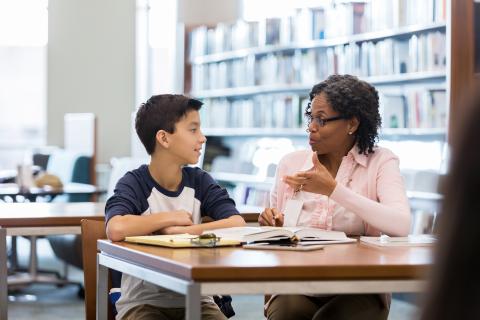Native Education Collaborative Webpage Part 3: Tribal Consultation & Sovereignty and Behavioral Health


For the third and final topic in the Native Education Collaborative Webpage series, we will discuss the importance of Tribal Consultation & Sovereignty and students’ Behavioral Health considerations.
Do you know what agreements the government has with tribes nationally? Tribal sovereignty means tribes have the same powers federal and state governments have over their nations. So, tribes should be included in conversations that affect their citizens. Tribal consultation is critical in ensuring the respectful inclusion of tribes in decision making and partnerships.
Native nations have experienced a lot of hardship due to their treatment by the federal government, from broken treaties to boarding schools. But there is a growing movement to right these wrongs.
First, area schools need to learn about their local tribe’s culture and history to better understand Native students’ needs. Next, they need to include tribes in the planning process. Here are some steps to reach these goals.
Visit the Nationalcompcenter.org to learn more about tribal consultation and sovereignty. Available resources include fact sheets, a topic brief, and infographics.
Native communities thrive through their resiliency, strength, and endurance. These strengths are essential for helping them through the intergenerational and historical trauma of their people. However, colonial education styles can pull away from these strengths when Native students are labeled as “troubled” or “challenging.” Educational systems are not perfect. But there are approaches that school systems can take to recognize and address the root cause of these undesirable behaviors in the classroom.
Native culture often views health holistically in that it comprises emotional, mental, spiritual, and physical health. As such, educational systems should look to address behavioral health as whole-person wellness, pulling in each of these components. And they should do so in a culturally respectful manner.
One proven approach to support behavioral health for Native students falls within the Seven Generations theory: we are affected by our past three generations, and we affect our future three generations. This theory helps explain how historical trauma affects Native students today and why providing cultural behavioral supports can positively affect future generations. It involves wrap-around care to ensure students have trauma-informed support wherever they need it – with a behavioral health provider, at school, in the community, and at home.
Visit the Nationalcompcenter.org o find resources about behavioral health considerations for Native students. Available resources include fact sheets, infographics, and a topic brief.




